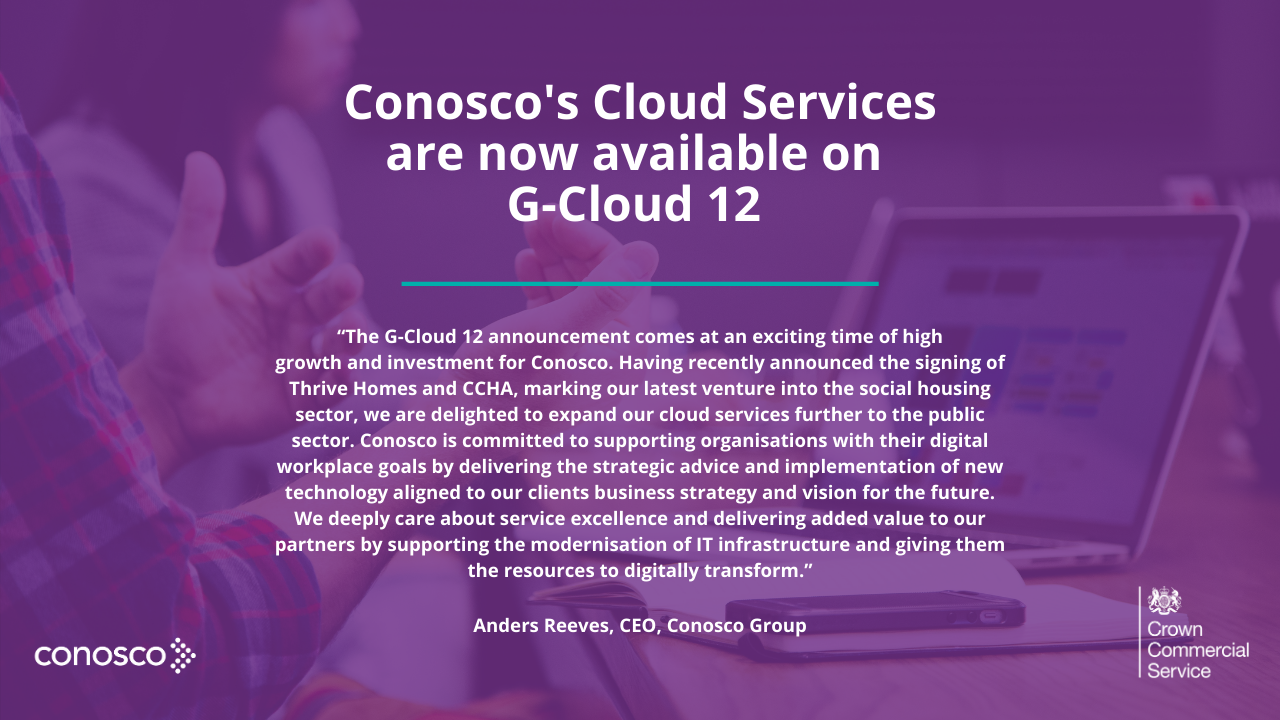Start Small, Not Stupid: How Your Startup Should Think About IT
by Conosco on Mar 6, 2015

£1.6 million of business is conducted over the Internet each minute. The rise of e-commerce has eliminated many obstacles that used to stand in the way of entrepreneurs, and because of this, startups are stylish. Many have flourished, partially because it costs less than it ever has to access a global customer base. As Martin Zwilling says, “the world is now a single market.”
With that accessibility comes increased competition. Everyone with an idea thinks he can become a CEO, and many try. But most people falter when they realize that though today’s barriers are different, startup success remains an elusive and difficult thing to attain.
Almost every company with hopes of growth needs a dependable IT Support company to support its employees, manage its applications and consistently improve its systems infrastructure. Predictably, IT proves to be a serious stumbling block for many entrepreneurs in the most critical stages of their companies’ growth.
Develop a Growth Plan
Of course, you don’t need any sort of IT support until you actually grow as a company. Three cofounders working on their laptops can work off of Google Apps and Excel. But even at that stage, they should plan to handle that moment when they need to build a network of employees, manage multiple client relationships and develop a sustainable method of structuring their enterprise.
Don’t get caught with your hands in your pockets when your company starts attracting attention. Of course, you have to be flexible, but you should have a good idea of what steps you will take to serve your IT functions when you actually begin to need them.
Acquire Trusted Mentors…and Listen to Them
The Startup Genome Report states that startups who actively incorporate mentorship into their decision-making process raise seven times more money than those who don’t. The lesson: Don’t assume you know everything. Learn from experience, especially others’ experience.
Outsource IT Unless You Have a Really Good Reason Not To
When your startup grows out of its initial incubation stage and begins onboarding other full-time employees, you’ve reached a very important step in the growth process. It’s also one rife with challenges and potential pitfalls that can slow you down or even destroy your company.
All of a sudden you have ten employees who need technological support, clear computer policies and a secure digital working environment. Basically, you need IT.
Do you hire a full-time employee, a multifaceted IT expert who will essentially fill your CIO role? Do you step up and try to do it all yourself? These options are both risky and expensive. For most startups, the third option, outsourcing IT to an expert, is both safer and cheaper—up to 50 percent cheaper, actually.
This advice is not universal. There are many good arguments against outsourcing IT, especially if you already have someone who can perform well in the role of CIO. Still, its advantages make this choice so compelling that you should assume you’re going to outsource IT unless you have a very good argument against it.
Don’t Cut Corners
Make intelligent purchase decisions. Learn to look beyond the up-front costs of applications in order to predict and incorporate their true value. It might make sense to use Google Spreadsheets as a CRM substitute for a little while: It’s free and easy to use.
And it will continue making sense until the day you fail to locate vital customer information or, worse, have your customer data stolen by cyber-predators who have located easy prey.
It’s not just about security, either. It’s about building a company that’s prepared to expand. As Mahesh Piddshetti, conducting a post mortem examination of his failed e-calendar startup Kiko, writes, “Cute hacks can cost you time. Take the time to do things right from the beginning. Seriously.”
You do not want to be conducting a post mortem examination of your startup.
Hire the Right People at the Right Time
Andrew Burke, conducting a study for the Cranfield School of Management, found that many startups hire too early. In fact, startups that hired employees before going to market and testing their product failed at a rate nearly 1.5x that of those who conducted “pilot” programs.
But each market is different; accordingly, every startup’s business plan will—and should—be unique. You can hire too late, when you’re already overwhelmed and in despair.
In terms of building an IT organization that can actually add value to your business, hiring presents perhaps the most important step in the process—and the most challenging. Once you have the timing figured out, selecting the right person for the job is a process so maddening that you might be tempted to take shortcuts. However, the hiring process is one of the most high-value uses of your time.
There’s no secret to what you have to do, no magic test that automatically unearths superstars. You just have to set and abide by rigorous standards, conduct thorough interviews, test candidates’ skills comprehensively and make sure they will fit into the culture of your enterprise.
Don’t Underinvest in Technology
Going with cheaper, less reliable technology can often lead to catastrophic consequences down the road. In an average company, just 10 to 20 percent of the IT budget will be available for purchasing newer technology. The rest will often go towards maintaining outdated systems, slapping bandages on the existing architecture and managing projects.
That can tempt CIOs into underinvesting in technology that may provide key benefits. Budgets must be adjusted to adequately take advantage of the tools available. Only with the proper resources can IT truly serve its function.
Conclusion
IT can be a difficult beast to wrangle for a company of any size, let alone a high-growth startup lean on resources and experience. The rate of startup failure is staggering, and even entrepreneurs who realize the need to focus on IT can find themselves lost in unfamiliar waters. But certain strategies can make the sea of startup IT easier to navigate.
The specific examples above can be boiled down into a general set of principles. Startup founders who find themselves needing IT should always be learning, be wary of shortcuts and be unafraid to seek help.
You May Also Like
These Related Stories

Discover our suite of G-Cloud 12 Services; helping the public sector embrace Digital Workplace Transformation
Conosco establishes itself as Strategic Cloud Provider, bringing a host of services to the public sector via the G-Cloud …

How to streamline Business IT with Hardware Virtualisation
According to Gartner research, more than 70 percent of server workloads are being virtualised as we write. This shows th …

Introducing the new role of Group CSR Officer
Staff feedback prompted the business to consider its position with regard to Corporate and Social Responsibility (CSR). …
